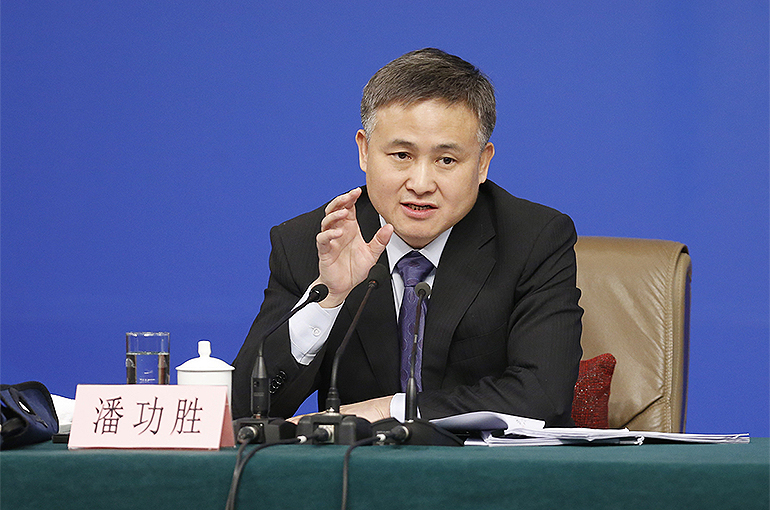 PBOC’s Deputy Governor Pan Gongsheng Is Named Central Bank’s Party Chief
PBOC’s Deputy Governor Pan Gongsheng Is Named Central Bank’s Party Chief(Yicai Global) July 3 -- Pan Gongsheng, one of the five deputy governors of the People’s Bank of China for more than a decade, was appointed party secretary of the central bank.
Sixty-year-old Pan, who also heads the State Administration of Foreign Exchange, replaces Guo Shuqing, 67, as party secretary of the PBOC, the bank said in an statement posted on its website on July 1. Guo will continue to serve as a deputy governor. The PBOC also noted that Governor Yi Gang will no longer serve as deputy party secretary.
“Over the years, we have accumulated a lot of experience in coping with external shocks and the policy tools for the macro regulation of the forex market have become more abundent,” Pan said in his latest public speech during the 14th Lujiazui Forum on June 8. “We have the confidence, conditions, and capability to maintain the stable operation of the forex market.”
China’s monetary policy is orientated toward cross-cyclical internal and external balance and will not follow the US Federal Reserve’s big fluctuations, Pan added, noting that there will not be a competitive zero percent interest rate or quantitative easing in China.
During his tenure as PBOC deputy governor, Pan was assigned many important tasks, such as improving the market-oriented mechanism of the Chinese yuan’s exchange rate, promoting the inclusion of the yuan in the International Monetary Fund’s Special Drawing Rights’ basket of currencies, and facilitating the set up of the Swap Connect for the interest rate swap markets between the Chinese mainland and Hong Kong.
Before joining the PBOC, Pan worked at Industrial and Commercial Bank of China between 1993 and 2008 and at Agricultural Bank of China as vice president from 2008 to 2012.
China’s financial regulatory system has undergone significant changes this year, as the National Financial Regulatory Administration, a new body tasked with overseeing the country’s financial sector, was set up in May and absorbed the China Banking and Insurance Regulatory Commission.
The PBOC’s daily supervisory duties targeting financial holding companies and its protective duties targeting financial consumers were transferred to the NFRA so that the central bank could focus more on monetary policy and its macro-prudential functions.
Editors: Dou Shicong, Futura Costaglione